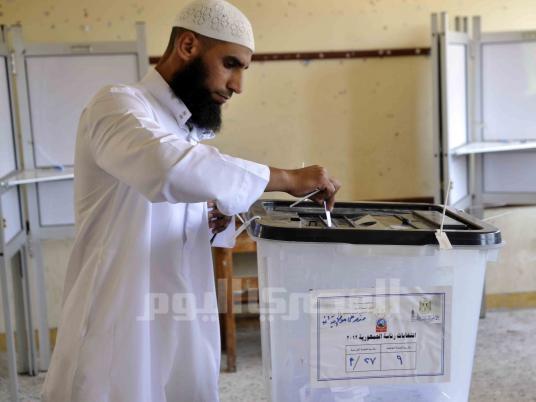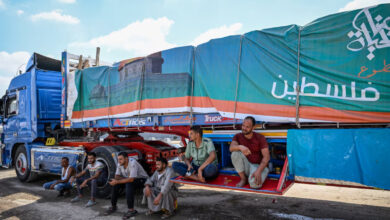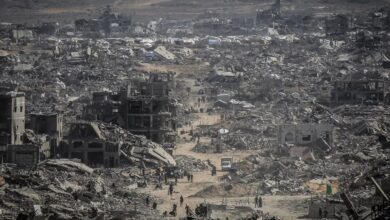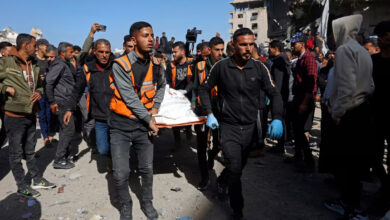
A leading figure from Gaza’s ruling Hamas has said that the group’s removal from the US and European countries’ lists of terrorism sponsors “has become a matter of time.”
Ahmed Youssef, one of the group’s leaders, told the Palestinian news agency Maan on Monday that, “There are contacts [being] made by the movement, with the help of Arab and Islamic countries such as Qatar, Egypt and Turkey, to convince major and European countries to take Hamas’s name out of the terrorism list.”
Youssef added that the contacts received positive responses from some European countries, without naming them, saying that visits from other Western countries are also positive signs.
“Despite the requirement of the international Quartet [for us] to recognize Israel in order to take Hamas off of the terrorism list, we will not do so,” he said.
The rockets fired by Hamas were not targeting civilians, Youssef claimed, but targeted Israeli military bases instead. “The armed struggle is guaranteed by international law, [the right] to resist occupation … but Western countries are biased in favor of Israel.”
“It is not reasonable for Western countries to support Islamist regimes in Tunisia and Egypt, and continue to boycott Hamas, which came out of the womb of these Islamist movements, and to keep it on the terrorism list,” he added.
Youssef also addressed the tunnels between Gaza and Egypt, saying that Egypt was not destroying all of them, but only the ones that “threaten its national security.”
Over the past two months, Egyptian security has been cracking down on cross-border underground tunnels by filling them with water and debris, while also tracking down smugglers in a bid to stop weapons smuggling.
Gaza Strip has been under a strict Israeli blockade since 2007 when Hamas took over the coastal enclave. The blockade prompted its citizens to rely on underground tunnels as their sole means to import basic needs, particularly building materials.
The Turkish news agency Anadolu reported Monday that the Egyptian Armed Forces had demolished two tunnels. The military said recently that the tunnel demolition campaign has been ongoing as part of Operation Eagle, a broader military and security campaign it launched last August following an attack on a military checkpoint near the Egypt-Israel border that left 16 Egyptian soldiers dead.
In February, President Mohamed Morsy's assistant for foreign affairs, Essam al-Haddad, said Egypt would not tolerate weapons smuggling from Gaza onto its soil. Local citizens told Anadolu that Egypt has destroyed at least 230 tunnels to date.
Meanwhile, Hamas Foreign Ministry Under Secretary Ghazi Hamad said that Hamas rejects the Egyptian army’s demolition of the tunnels. “We had to resort to the tunnels to overcome the Israeli blockade,” he noted. “And we fully control the tunnels so that infiltrators do not try and harm the security of Egypt or Gaza.”
“We are willing to close these tunnels if the Rafah crossing is opened for commerce,” Hamad said, adding that 253 workers died under the rubble while digging the tunnels.
“The siege must be lifted and Gaza opened to world trade,” he said.
Hamad stressed Hamas’s respect for the Egyptian regime, and denied any intention to interfere in Egypt’s internal affairs. “Our relations today are better than under the last regime,” he said.
Also on Monday, Israel reopened the Karam Abu Salem commercial crossing, allowing 350 trucks carrying cement and construction materials to cross into Gaza, Palestinian news agency SAFA reported, quoting Ahmed Fatouh, head of a committee coordinating cargo movement in to Gaza.
Karam Abu Salem is the only commercial crossing into Gaza. Israel regularly closes the crossing on Fridays and Saturdays, as well as other times without notice.




